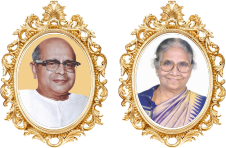Fund Raising
oops, no content available

Deemed to be University Estd. u/s 3 of UGC Act 1956, Category A by MHRD [now MoE]
Re-accredited with an 'A++' Grade by NAAC CGPA 3.65/4, Category I by UGC
Coimbatore - 641 043, Tamil Nadu, India


Women Helpline: 181
Child Helpline: 1098
Emergency response support system: 112
oops, no content available
oops, no content available
oops, no content available